|
Ever struggle with attempting to find God in your daily life? Do you ever feel that you are just so busy that engaging in a personal relationship with the Lord seems out of the question? Do you struggle in attempting to recognize how God is acting in your life, at work, or in the classroom? I promise, you are not alone. Many of us struggle with finding God not only in the ordinary, but also in our busy lives. Different saints, such as St. Francis de Sales, even recognized how at times it can be challenging to find God’s presence in the ordinary. Surprising right?! Sometimes, it seems so difficult to find God in the mundane or in the office. Yet, this is exactly where we can find God’s presence—in the ordinary!
St. Francis De Sales, a Doctor of the Church and inspiration of the ever popular Salesian Spirituality, wrote in his famed Introduction to the Devout Life that “It is an error, or rather a heresy, to wish to banish the devout life from the regiment of soldiers, the mechanic’s shop, the court of princes, or the home of married people… Wherever we may be, we can and should aspire to a perfect life.” St. Francis De Sales advocates the notion that everyone is called to be in relationship with God no matter their specific state in life. For St. Francis De Sales, the soldier, the mechanic, the government officials, and the married couple—any lay person—can find God in the ordinary. God meets each of us were we are; his presence is not restricted to a building. Nevertheless, what are some practical ways in which we can find God in the ordinary? Again, St. Francis de Sales has more wisdom for us from his Introduction to the Devout Life, writing that “occasions do not often present themselves for the exercise of fortitude, magnanimity, and great generosity, but meekness, temperance, integrity, and humility are virtues that must mark all our actions in life.” When we refrain from boasting about our accomplishments in the office or when we refrain from lying to our professor regarding a string of absences from class, we are encountering God in the ordinary. When we simply take a minute in the beginning of the morning and offer our day to God, we are encountering God in the ordinary. When we take a moment to recognize a coworker’s kindness to a stranger or a fellow student’s concern for a student falling behind in class, we are encountering God in the ordinary. Encountering God is not solely done on in the pews or on the mountaintop. Instead, we can encounter God in the ordinary, in our everyday life. To learn more about seeing God in the ordinary, please visit our Prayer Resources page by clicking here. **This post was originally published on 6/3/2021**
0 Comments
“The LORD will fight for you; you have only to keep still.” -Exodus 14:14 There is something so comforting about the feeling of warm water. I revel in it every time I absentmindedly wash another dish or hop into the shower. The latter, especially, has become a type of mini-retreat for me. I turn the water to just under scalding and sneak away after my children’s bedtime for what has become a time of personal prayer. Here, there are no diapers to change, no sibling qualms to suppress, no crumbs to pick up, no stains to spray. There is only me, the water, and God. Sometimes, I choose to put on some favorite songs or hymns. Other times, an insightful podcast will do. But most of the time, I just crave the silence that cascades all around me, washing the ups and the downs, the moments of peace and frustration, away. It’s not haphazardly that the Church uses water in the sacrament of Baptism. And it’s not coincidental how soothing and renewing a warm bath or shower can be. From the beginning of time, God has used water to make things new. In the story of Creation, his spirit hovers above the waters and creates order and beauty out of chaos. In the story of Noah, he cleanses the earth of sin through water and creates the world anew—giving humanity a fresh start. In the story of the Exodus, the Israelites pass through the water of the Red Sea from slavery into freedom. And at the Cross, Christ pours out blood and water from his side to give birth to the Church and open the doors of salvation. It is for these reasons that water is so significant in the sacrament of Baptism. Throughout salvation history, God has used water to create order out of chaos, cleanse us of our sin, lead us from spiritual slavery to freedom, and incorporate us into the Church as his sons and daughters. Baptism does all of these things. It is the first sacrament of initiation and the most life-changing event we will ever encounter—more life-changing even than our birthdays, wedding day, ordination day, or the day we may become parents. The other sacraments, life-changing and beautiful as they are, cannot occur without us first being baptized. As the Catechism explains, “Holy Baptism is the basis of the whole Christian life, the gateway to life in the Spirit (vitae spiritualis ianua),4 and the door which gives access to the other sacraments” (1213). Furthermore, Baptism fundamentally changes our identity. St. Paul explains in Ephesians 4:22-24 that in Baptism we “put away the old self of your former way of life…and put on* the new self, created in God’s way in righteousness and holiness of truth.” A few weeks ago, as we entered into the second week of Ordinary Time, we heard another story with water: the story of the Wedding Feast at Cana. In this case, God takes water, an ordinary, natural element, and changes it into something new. Where there was lack, he created abundance. He continues to do this today -- a thought that gives me hope during trying times. After a week of illness in our immediate family, the loss of an extended family member, elevated sibling rivalry, communication breakdowns, a close friend in the hospital, general isolation, and a stolen credit card (for good measure), I find myself in the bathtub once more—slowly breathing, closing my eyes, and praying: make me new. With ragged emotions, a fried brain, and a heavy heart, I whisper, “Lord, I have nothing to give.” Like the jars of wine at Cana, I am empty. How fortunate for us that this is the area of God’s specialty: our weakness. Only weeks ago at Christmas we marveled at this in a special way as God physically entered into our frailty in the frailest of forms—as an infant. Now we hear about this God-man beginning his ministry by providing an extravagant amount of wine at a wedding. God doesn’t skimp. And as I breathe in and out slowly in the water, I remember the truth of who God is and what he has done. He can take my chaos and make order and beauty. He can take my slavery to sin and my ego and free me to love. He has incorporated me into his family. And every time I choose to participate in the sacraments and live out my baptismal identity, he makes me new by filling me with his grace. If you, too, are feeling tired, sick, overwhelmed, or stressed, I invite you to remember in prayer, “The LORD will fight for you; you have only to keep still.” On this day in the Church, we celebrate the life of St. Blaise who was a healer, evangelist, and a martyr. In churches worldwide, we come forward at Mass on Feb. 3rd for a blessing from St. Blaise to be healed of any throat ailments and other illnesses. He lived his life in devoted service to the Lord and suffered a martyr’s death because he refused to denounce God and abandon his faith. He was willing to die rather than forsake all that was important to him. As we reflect on this saint and the impact of his life in the history of our Church, it is a perfect time to examine our own lives. As we come out of celebrating Christmas, the beautiful season of light, and walk in Ordinary Time, it is a great time to examine our level of commitment to discipleship and keeping Christ at the center of our lives. Are we totally and completely invested in following our Lord and Savior in every aspect of our life – no matter the cost? We have the remarkable example of holy men and women who are now saints to remind us that we are purposed to love, serve, and glorify the Lord in all we do, think, and say. In a recent Sunday’s Gospel, Mary instructs the servants at the wedding feast to “do whatever He tells you.” These are the last recorded words the Blessed Mother speaks in the holy Scriptures. This is significant and her instruction is relevant to us today. If we live each day asking God what He wants of us, we will be fulfilled beyond all our imagining. When we follow the path God sets before us, we gain more freedom, not less. When we die to ourselves and our wants, we become more whole, more alive. When we love extravagantly, we become more energized, not worn out. When we are more generous with our time, our talents and resources, we amazingly gain more time to do more things for the Lord. When we cooperate with His plan – everything good is multiplied in our lives. God calls each of us to become saints, one day at a time, in the grind and messiness of life. We just need to be intentional about listening to His voice prompting us in all the opportunities He provides. This will sanctify us and bring us true joy. It’s important to hear this because the world screams the opposite message. As I write this, I am in the midst of adjusting to grown children leaving our home and repurposing bedrooms and discovering more time to focus on other activities. I am tempted to enjoy more things that are fun, which is good within reason. I can conjure up endless projects that I never had the time to pursue while raising six kids, working, and administering a household, but I have to ask – is this what God wants me to do? Since Christmas, I have been reflecting on all these life changes in my heart and asking for clarity in my purpose in this season of my life. And as always, God does not disappoint. He has been drawing me to more prayer time and daily Mass – and bringing to mind all those I can bring to the altar to pray for. He has clearly shown me how important it is to share more time with my husband – recreating together, talking, and sharing our ideas of what we can do as a couple in this stage of our life to build up the Body of Christ. He has brought to mind the vows I spoke 42 years ago and how I can more deeply live them out today. He specifically reminds me to always choose the most loving thing as I continue to live my vocation as wife and mother. He shows me so many ways to be available to my family and those around me. I am drinking deeply from the well of God’s love, grace, and mercy, finding that opportunities abound for me to live out my discipleship in new and exciting ways. And he gives me refreshment and joy that settles deep in my soul. I encourage you all, in these Ordinary days of the liturgical year, to take some quiet time to search your heart, mind, and spirit to see how you are doing in the Lord’s service. Are you 100% on board with practicing your faith in your relationships, in your encounters with others, in your thought life, and in all your behavior? Making an honest assessment, then asking the Lord and all the saints to help bolster your courage, strengthen your efforts, and fortify your energy to be the disciple you were called to be will lead you to become transformed into someone extraordinary for God! “This is my prayer: that your love may increase ever more and more in knowledge and every kind of perception, to discern what is of value, so that you may be pure and blameless for the day of Christ, filled with the fruit of righteousness that comes through Jesus Christ, for the glory and praise of God.” Phil 1: 10-11 When the COVID-19 pandemic began and so much seemed outside of my control, I turned to prayer as a source of comfort, nourishment, and stability. Favorite Catholic podcasts, powerful homilies, Gospel-inspired music, Scripture reading, and devotions like the Rosary kept me grounded in a higher reality than the confusing, dark, and humbling one I faced. Perhaps I felt the need to overcompensate in a time when I couldn’t physically receive the Eucharist. The lack of physical Communion meant I searched for spiritual, mental, and emotional communion with the Lord in other ways I found fruitful. In this way, times of trial can bear much fruit—suffering sharpens our eyes to the eternal and true. It is sobering. Surrendered to God, suffering can be the most direct path of conversion and redemption. As the pandemic continued and I was able to adjust to my new “normal,” my sense of emergency slowly began to fade. I found ways to be comfortable and to continue meeting needs like friendship, worship, and rest. No, everything was not as it had been. Life was still a shadow of its former glory. And yet, I had found ways to cope. As this trajectory continues with the reopening of society in many ways, I have begrudgingly found that my deep prayer life has slowly faded. Becoming more of a checklist than a time of renewal, my prayer time is filled with distraction and noise. I’ve come to realize that I would rather fill my time with the noise—albeit good noise—of a Catholic podcast or homily instead of turning everything off and filling my time with God Himself. I’m more comfortable hearing others talk about God and their spiritual insights than talking to God. I’m also more comfortable talking AT God than WITH Him. I have a lot to say, but am not spending time listening or receiving. Finally, once I do settle down to pray, my tasks, chores, and rambling thoughts bombard me. My prayer time is filled with noise and distraction. Why is it easier for me to scroll through a newsfeed of beautiful images and consumer goods than to thumb through my Rosary meditatively? Why is it easier to respond at all moments to the latest texts in a never-ending group thread than it is to respond at all moments to the promptings of the Holy Spirit? Why is my heart more easily captured by the words of the media than by the Word of God? For perhaps the millionth time, I must face again a thorn in my side that prevents me from greater holiness: noise. “Noise, the grand dynamism, the audible expression of all that is exultant, ruthless, and virile—Noise which alone defends us from silly qualms, despairing scruples, and impossible desires,” says the demon Screwtape in C.S. Lewis’ classic, The Screwtape Letters. He continues, “We will make the whole universe a noise in the end. We have already made great strides in this direction as regards the Earth. The melodies and silences of Heaven will be shouted down in the end.” Lately in my life, it seems like Screwtape and his friends are succeeding. I’m having trouble hearing the melodies of Heaven amidst all the noise. And can’t we all admit to knowing this deep down—that much of our lives is an endless stream of noise and distraction threatening to drown out the still small voice inside? I reflect on these things once again while reading a powerful book and meeting virtually with other women--This Present Paradise: A Spiritual Journey with St. Elizabeth of the Trinity. Elizabeth, through the author Claire Dwyer, is shaking me from my complacency and passing through the distractions to help resurrect my heart. This young French Carmelite nun who lived over a hundred years ago mastered the interior life of prayer and encourages all to do the same—regardless of their vocation in life. I know I am called to more than what I’m filling myself up with; an hour of scrolling through items on sale or watching a home renovation show will never compare to fifteen minutes of virtual Adoration or a few decades of the Rosary. Any time consecrated to God is not returned unsanctified. In times of greater stability, comfort, or complacency, I’m also reminded of the Scripture passage about the wise virgins at the gate. We are called to fill our lanterns with oil as we await the Bridegroom so that we will be prepped and ready for His return. I have personally found that my preference for news feeds, shows, or internet browsing fills my lantern with something akin to water rather than oil, and so I am using this season of Ordinary Time to recommit to a quieter, more fruitful prayer life. Below are a few things I have found helpful for overcoming spiritual distraction and ensuring daily prayer:
As the world continues to reopen in ways that give us hope, I invite you to reflect on your prayer life throughout the pandemic months and set goals for yourself during this season of Ordinary Time. In the end, may we find that the melodies and silences of Heaven triumph over the noise of the world. Ever struggle with attempting to find God in your daily life? Do you ever feel that you are just so busy that engaging in a personal relationship with the Lord seems out of the question? Do you struggle in attempting to recognize how God is acting in your life, at work, or in the classroom? I promise, you are not alone. Many of us struggle with finding God not only in the ordinary, but also in our busy lives. Different saints, such as St. Francis de Sales, even recognized how at times it can be challenging to find God’s presence in the ordinary. Surprising right?! Sometimes, it seems so difficult to find God in the mundane or in the office. Yet, this is exactly where we can find God’s presence—in the ordinary! St. Francis De Sales, a Doctor of the Church and inspiration of the ever popular Salesian Spirituality, wrote in his famed Introduction to the Devout Life that “It is an error, or rather a heresy, to wish to banish the devout life from the regiment of soldiers, the mechanic’s shop, the court of princes, or the home of married people… Wherever we may be, we can and should aspire to a perfect life.” St. Francis De Sales advocates the notion that everyone is called to be in relationship with God no matter their specific state in life. For St. Francis De Sales, the soldier, the mechanic, the government officials, and the married couple—any lay person—can find God in the ordinary. God meets each of us were we are; his presence is not restricted to a building. Nevertheless, what are some practical ways in which we can find God in the ordinary? Again, St. Francis de Sales has more wisdom for us from his Introduction to the Devout Life, writing that “occasions do not often present themselves for the exercise of fortitude, magnanimity, and great generosity, but meekness, temperance, integrity, and humility are virtues that must mark all our actions in life.” When we refrain from boasting about our accomplishments in the office or when we refrain from lying to our professor regarding a string of absences from class, we are encountering God in the ordinary. When we simply take a minute in the beginning of the morning and offer our day to God, we are encountering God in the ordinary. When we take a moment to recognize a coworker’s kindness to a stranger or a fellow student’s concern for a student falling behind in class, we are encountering God in the ordinary. Encountering God is not solely done on in the pews or on the mountaintop. Instead, we can encounter God in the ordinary, in our everyday life. To learn more about seeing God in the ordinary, please visit our Prayer Resources page by clicking here. Are you tired of the feasting? We are at the tail end of feasting after the Easter season with the celebration of the Solemnity of Corpus Christi last Sunday. We experienced the 50 days of Easter, the Solemnity of the Ascension of the Lord, Pentecost, the Solemnity of the Holy Trinity, and finally, the Solemnity of Corpus Christi. In my family, we have partaken in a fair share of feasting on treats, and I am almost ready for a period of fasting again. The transition from the Easter season into Ordinary Time can lead to a misunderstanding of what the Church is calling us to during this liturgical season. It is easy to see Ordinary Time as boring or as a time for laziness, but if we look at the liturgical calendar and journey along with the Apostles in the Scriptures, we can see that it is just the opposite. Reflecting back on the Scriptures read during Lent and the Triduum, we see the disciples’ confusion about what Jesus was preparing them for. He warned them often that He had to suffer, die, and rise, and yet they were still in hiding and unsure of their mission after the crucifixion and Resurrection. Scripture states that they were locked in the Upper Room in fear of the Jews after Christ’s death and then that they were left “looking intently at the sky” after Christ’s Ascension. It is not until Pentecost, when the Holy Spirit descends upon the disciples, that the gift of understanding is given to them and they are able to go forth and spread the Gospel message. In celebrating the Solemnities of the Ascension and Pentecost after Easter Sunday, we come to understand our role as Christians on mission. We are reminded that we too are equipped with the Holy Spirit for the call to go out to all the nations and proclaim the Good News, baptizing in the name of the Trinity. We next celebrate the Solemnity of the Holy Trinity, a day to contemplate that the Holy Trinity is relationship itself, and we are invited into that relational exchange of love among Father, Son and Holy Spirit. As the Catechism explains, "By the grace of Baptism ‘in the name of the Father and of the Son and of the Holy Spirit,’ we are called to share in the life of the Blessed Trinity” (CCC 264). This Solemnity invites us to ponder the vastness and majesty of God in three persons and His great love for His creation. Finally, the Church celebrates the Solemnity of Corpus Christi (Latin for “Body of Christ”). Christ, after the Ascension, remains with us in the bread and wine transformed into His Body and Blood during the celebration of the Mass. This Solemnity focuses our attention and hearts on the greatest gift to the Church: the Body, Blood, Soul and Divinity of our Lord in the Holy Eucharist. Together with the celebration of the other feasts after Easter Sunday, the celebration of Corpus Christi is a moment of grace given to us today that propels us into this season of Ordinary Time. If we look at the calendar, the Church has been preparing our hearts to enter into this celebration of Corpus Christi. We needed Jesus to establish the Eucharist (Holy Thursday), to suffer, die and rise (Triduum), to return to the Father (Ascension), and to send the Church an outpouring of understanding for Her mission through the Holy Spirit (Pentecost). As a result, we can ponder and enter into the life of the Holy Trinity (Solemnity of Holy Trinity). All of these feasts prepare the Church for the Solemnity of Corpus Christi and for our journey into Ordinary Time. The Holy Eucharist is the strength for our journey in the ordinary. The Body and Blood of Jesus assists us in following the will of God as we receive God Himself. The Solemnity of Corpus Christi can be celebrated with hope that Jesus is with us in this Holy Sacrament, and the Church is calling us to continued growth in Ordinary Time. Questions for Reflection: How can you use Ordinary Time in order to grow in your faith? What graces from Lent and Easter can help propel you into Ordinary Time? My husband and I lingered in the Church a tad longer than usual the last Sunday of Christmas. We were taking in the beauty of the liturgical season—the lights, trees, colors, the Nativity—ultimately basking in the hope that is born from the Word made Flesh who dwells among us. To be frank, we were also lamenting the season of Ordinary Time that was next, followed by the Lenten Season. We were lamenting the transition from the hope-filled season of Advent into the Lenten journey that leads to Good Friday, where the babe in the manger becomes the suffering servant on the Cross. With Advent lasting for the shortest amount of time this year, and Lent approaching quickly thereafter, I find I am still reflecting on the Mysteries of the prior Christmas season. I suppose I am still sitting in my parish church reflecting on the Wise Men bringing the Child Jesus gifts, reflecting on the idea that a child caused conversion. Highly educated adult men encountered a baby in a stable for animals, and this encounter prompted a change of heart. I would prefer to stay in that time of hope and joy rather than enter into the gore and the sacrifice of the Passion. A few weeks ago, I was reading a reflection in the Magnificat, a daily Mass companion, about the conversion of the Thief on the Cross. The author mentioned that the thief went through a conversion upon encountering the Lord, bloodied, beaten, on the verge of death. The author asks, “What is it that brought the conversion to the thief?” Jesus was in a position of shame, and yet the thief sought repentance and salvation. How could this be? Jesus as the Messiah would have been hard to believe based on His appearance and vulnerability on the Cross, particularly to a thief who had lived a life worthy of crucifixion. Jesus as a child wrapped in swaddling clothes and Jesus on the Cross have the ability and desire to convert souls. Jesus is Lord in every season. He wants our hearts. Christmas seems so beautifully packaged; it can appear that Jesus as a child is sweeter, warmer, more approachable. Yet the story of the Good Thief shows that Christ can also be approachable in his ability to suffer with and for mankind. The thief’s conversion on the cross invites us to approach the bruised and beaten Lord with our own trials and hardships. I was fearful to head into the darkness of Lent, forgetting that Jesus wants to be with us, in His vulnerability, even in our difficult times. Whether we are fleeing suffering, undergoing trial, or in a stagnant time spiritually, we must not put limits on Jesus’ desire for closeness with us, especially as we enter into the season of Lent. If you are struggling with the beginning of the Lenten season, desiring to stay back in the light and joy of the Christmas season like my husband and I, remember that Jesus wants to enter into your Lenten journey, into each season of your life. If you open yourself to him as the Good Thief did on the cross, he can and will grab your attention and be present to you during this season of fasting and preparation. Let us pray for hearts that are open to God’s graces during Lent, open to an encounter and conversion with Christ during every season of the heart. Question for Reflection: Are you struggling to enter into the Lenten season? How can you more deeply invite Christ into your Lenten journey? Click here for resources to accompany you throughout your Lenten journey. My son is just learning to walk. At 15 months, he’s starting to take his first, unsteady steps. He wobbles from chunky leg to chunky leg, looking back at us to make sure everything is alright, and plops on the floor after a few strides. He loves it when we cheer him on, and then he gets back up and begins again. We, too, are beginning again. We have walked into a new calendar year. This Monday, we will celebrate the end of the Christmas season on the Solemnity of the Baptism of Our Lord and enter into Ordinary Time. How are we walking into the new year? As a parent, I know my son is taking his first steps towards walking securely. Little does he know that these steps will prepare him to one day run. I know his trajectory, but the path for him is still unknown. Similarly, God knows our path. He knows what He created us to be and do, what our gifts and talents are. He made us to run, and yet He does not interfere with our free will. We, like my son, are often walking into an unknown future. We take step after step in faith with God walking alongside us. How do we make our journey? Are we stumbling or walking confidently in God’s grace? Do we look to Him when things seem unbalanced and reach for His hand? Even when things seem steady, do we turn back, like my son looks to his parents, and look for God and His reassuring presence? Do we ask God for His help and guidance? God walks with us throughout each chapter of our lives. His coming into the world in the Incarnation, which we celebrated at Christmas, is a beautiful and mysterious proof of the lengths God is willing to go to be with us. He wanted to be intimately involved in the human story—and so He became one of us. He interacted with mankind as a man Himself, ultimately taking on the weight of our sin and opening the doors to salvation. God intervened in a radical and beautiful way by physically walking alongside us in the person of Jesus Christ, and He continues to do so through His church, the sacraments, prayer, and our communities. As we end the celebration of Christmas and enter into the new year and Ordinary Time, I invite you to reflect on how you are walking into this season of life. We have spent the weeks of Advent preparing for and celebrating the coming of Jesus Christ into our midst. But have we left Him in the manger? Have we forgotten to bring the Christ child home with us or kept room for Him in the inn of our hearts? Let us allow God to be intimately a part of our lives throughout this upcoming year. May we walk with Him and towards Him each day, whether we are stumbling or walking confidently, so that we, like my son, may come one day to run. Question for Reflection: How can you walk more closely with God and toward Him this year? Sometimes it’s easy to feel a little bit lost in Ordinary Time. We know that during Advent we are preparing our hearts and homes to celebrate the joys of Christmas. We light the candles of the Advent wreath, we sing Advent hymns, send Christmas cards, and prepare our Christmas gifts. During Lent, we fast, pray, and focus on giving what we have whether that be time, talent, or alms. We usually know that it is a time to repent and focus on daily mortifications that will draw us into a closer relationship with our Triune God and lead us to a beautiful celebration of the mysteries of our faith. So, what happens in the quiet stillness of Ordinary Time? I have recently come to be both terrified and in awe of this passage of time. Reflecting on the purpose and importance of this liturgical period, I am reminded of the story of Simon, James, and John in Luke 5: 1 - 11. The skill and trade of fishing is a perfect analogy for us. Fishing requires knowledge, skill, practice, patience, and, possibly above all, trusted intuition. Let us imagine this scenario as it unfolds. Simon, James, and John have been working throughout the night. They are no doubt exhausted and deflated when Jesus asks them to go out yet again. How often do we feel like this? How often do we feel God nudging us to try one more time, to keep going, to persevere? How do we respond to that? Do we quietly take our boat back out onto the water? Or do we rail against his request? In Luke 5: 4, Jesus does not simply ask that the boats be taken back out. He specifically asks Simon to “put out into deep water…” Where are the deep waters in our life? Where are the areas that Jesus is calling us that we cannot touch or perhaps not even see the bottom? The interchange that follows is striking. After Jesus asks Simon to lower his net, Simon replies that they have worked throughout the night and have caught nothing, “but at your command I will lower the nets.” Are we trusting Jesus enough in our lives to lower our nets of prayer, spiritual, or physical action when we have been toiling and have failed to see the fruits of our labor? After the resurrection, Jesus again meets His disciples in this way in John 21. After an uneventful day of fishing in the sea of Tiberias, Jesus instructs the disciples to cast their nets back into the water. They did not even recognize him at first but did as He instructed. The catch was so full that they struggled to pull it in. In both instances, Jesus requests His disciples to take action just one more time before giving up. Ordinary Time is our time of action and risk taking. This is our chance to act on our belief in God, the belief that we profess and strive to deepen during Advent and Lent. Are we praying and living as if we truly believe that the Triune God is all powerful and miraculous? Are we using the term, “Thy will be done” as a contrite spiritual, physical, mental, and emotional submission to His divine will and purpose or are we praying those words in the hopes that He will take action so that we can remain in our comfort zone? What open sea do we need to cast our net into? What prayer have we given up on because we’ve forgotten that God exists outside of time? This is when we put into action all that we’ve seen and heard. He is speaking our name, inviting us to trust Him, to “put out into deep water” and cast our net. "Good morning and welcome! Today, we celebrate the Xth Sunday in Ordinary Time. Please stand and join in singing hymn number…" Most of us will hear these words, or words very close to them, for over thirty Sundays a year. After the joyful season of Christmas, it can seem too ordinary, almost boring, to return to Ordinary Time in the Liturgical Year. Instead of the extraordinary stories of Christ's birth in the Incarnation, we've gone back to the Jesus stories many of us grew up hearing: Jesus healing lepers, chastising Pharisees, and preaching to crowds. While Jesus’ ministry is anything but ordinary, our familiarity with the stories of the Gospel often desensitizes us to their extraordinary depth and power. It’s much easier to see the seasons of Christmas and Easter, as well as Advent and Lent, as extraordinary. They're special seasons of the Liturgical Calendar, set aside to celebrate and reflect on the greatest mysteries of our faith: the Incarnation and the Passion and Resurrection of Christ. These liturgical times make us feel our faith in a more visceral way. There's nothing like the gut-wrenching Passion narrative or the beautiful story of the Nativity to set our hearts ablaze for Christ! But if our experience of the Christian faith was nothing more than an emotional high, we would never be able to see Christ in anything but the heavily emotional experiences. That's what Ordinary Time gives us: it sustains our faith between the emotional highs and lows of Christ's birth, death, and resurrection. It reminds us that God is often most present to us in our ordinary humanity. May we not forget that Christ himself lived ordinarily for thirty years as a carpenter’s son in Nazareth. It's in Christ's day-to-day ministry that He meets people where they are and experiences the human condition with them. When He forgave the woman at the well, it wasn't at a big celebration, but in the very ordinary act of gathering water. When He called Zacchaeus down from the sycamore tree, all He wanted to do was share a meal. When He flipped the moneychangers' tables at the Temple in anger, He was there for the weekly observance of the Sabbath. Ordinary Time isn't about the humdrum monotony of life. It's about the slow, incremental action of the Holy Spirit in our lives. It's about, as St. Vincent Pallotti said, seeking God in all things. Just as we get up every day and go to work, we are called to use Ordinary Time to get up every day and give our best to God. So what can we do to live Ordinary Time well? The options are endless! —Maybe you like studying Scripture, but don't know where to go deeper? Take a look at the practice of Lectio Divina. —If you feel a strong draw to the Liturgy, try attending Daily Mass once a week or following the Liturgy of the Hours. —Do you sense a call to serve more with more intentionality? Explore the needs in your community. It doesn't have to be a Church ministry to be service! After all, we're given the instruction to "Go forth!" at the end of every Mass. The beauty of our faith is that there are so many ways to experience God in our lives, to connect with Him and bring His message of love to the world. It doesn't matter which way we choose to work on our relationship with Him, so long as we do so with intention. A healthy challenge for us all might be to pick just one practice to begin making into a habit during Ordinary Time. May we invite God to shift our perspective on the “ordinary” and help us see His extraordinary presence and grace in our journey of faith! The presents have been unwrapped, the carols have been sung, and the cookies have been baked and enjoyed. Most, if not all, of the Christmas decorations have been packed away until next year. We have officially entered into Ordinary Time. Why can’t this Christmas feeling of peace and hope, joy and love last all year long? I continually try to instill in those that I work with that their health and wellness is a journey. This journey is filled with peaks and valleys, calm and storm, joyous victory, quiet contentment and fierce struggle. Our faith is no different. Living our faith, living the life of Christ and, more importantly, the life Christ calls us to, is a journey. In the quiet of the post-Christmas excitement, let’s take a moment to ponder what we’ve recently celebrated. We have just completed a series of liturgies celebrating the Incarnation, the word made flesh. The United States Conference of Catholic Bishops defines the Incarnation as “the fact that the Son of God assumed human nature and became man in order to accomplish our salvation in that same human nature. Jesus Christ, the Son of God, the second person of the Trinity, is both true God and True man, not part God and part man.” The wonderful thing about this fact is that we know this is only the beginning of the story. Our wonder-counselor came down from heaven to preach and to heal. When He willingly sacrificed himself on the cross He atoned for our sins. Even then, the story is not over! In His rising from the dead and ascension into heaven, He remains with us. The second person of the trinity willingly sacrificed Himself so that we can experience Emmanuel in every moment and breath of our lives. God is no longer in a burning bush. His love, His very presence is burning within our very bodies. Do we truly believe this with all of our mind, body, and soul? Welcome to Ordinary Time. Ordinary Time is when our journey begins. The United States Conference of Catholic Bishops expresses for us that “this is the time of conversion,” a time for growth and maturation in living our faith. Where do we need to experience conversion in our own hearts? Where do we need to share our conversion? Perhaps our present journey is meant to be walked alongside someone else. Where is that burning presence guiding you during these weeks of Ordinary Time? The actual season of Christmas may be over, but the journey has only begun. As you ponder and reflect on these questions in your heart, I leave you with these words from the hymn Jerusalem My Destiny. I have fixed my eyes on your hills, Jerusalem my destiny! Though I cannot see the end for me, I cannot turn away. We have set our hearts for the way; This journey is our destiny. Let no one walk alone The journey makes us one. Composer: Rory Cooney (1990) My prayer for you during these “ordinary” days and weeks ahead is that you choose to kindle that fire within you daily. I pray that you choose to live the Real Presence with every beat of your heart. As Christ proclaimed to the little girl in Mark 5:41 “I say to you arise!” Let each of us respond to that same call. My friends, arise and journey on! Reflecting on the Scripture readings for today, February 5th, my mind wandered to the brilliance of the Letter to the Hebrews. We read Chapter 12 verses 18-19, 21-24 with the rich imagery of approaching the “city of the living God” that is the “heavenly Jerusalem” that contains such images as “countless angels in festal gathering” and “the sprinkled Blood that speaks more eloquently than that of Abel”. These phrases ignite a feeling of grandeur and magnificence! The passage describes an eternal gathering that should not be feared, but embraced.
We have been reading from Hebrews throughout Ordinary Time and will soon begin the Lenten Season. The author of Hebrews, who scholars say was a Hellenistic Jewish-Christian familiar with Platonic philosophy, inspires me. There is much to be said about the background and context of the letter. I would like to reflect on one phrase from Hebrews 12:1-4 that constantly returns to because it is quite an eternal gathering. The words, “so we are surrounded by so great a cloud of witnesses” show how to grow in holiness through the example of Christ. My imagination darts to the scene of all saints gathered together, surrounded in golden light with haloes on their heads. The saints are the witnesses who envelop the throne of God and embrace Jesus’ example of faith. They have run the race of life while keeping their eyes fixed on Christ. The Catechism explains that all the faithful form one body, whose head is Christ. The good of each of the faithful is communicated to the others as a communion of persons (CCC 947). The picture is a reminder of our work together to reach the heavenly Jerusalem and building the Kingdom of God on earth. "Strengthened by so many and such great means of salvation, all the faithful, whatever their condition or state - though each in his own way - are called by the Lord to that perfection of sanctity by which the Father himself is perfect" (CCC 825, cf. 296). We can join the cloud of witnesses! The image of the communion of saints reminded me of the book, Cloud of Witnesses, edited by Jim Wallis and Joyce Hollyday. It is a collection of the stories of modern-day saints and their influence on faith and work for justice. The collection includes Henri Nouwen, Thomas Merton Dietrich Bonhoeffer, and icons like Martin Luther King Jr. and Oscar Romero. These people are testaments to the faith along with countless others. They characterize the words in Hebrews 12, “For the sake of the joy that lay before him Jesus endured the cross, despising its shame, and has taken his seat at the right of the throne of God.” Enduring criticism, injustice, suffering and loss, these witnesses were confident that they would discover the joy of the “city of the living God.” Although we are not celebrating the feast of All Saints’ Day, we can be reminded of the stories of the saints and how they ran the race. Lent is a race in itself to the tomb of Christ, in hope that he will rise and we will be renewed! Matthew Kelly provides encouraging words for this Lent that will aid in your race as a witness of Christ and “saint-to-be.” He proposes that you have your “Best Lent Ever” with his daily reminders and reflections that go beyond giving up chocolate and sweets. We are a part of that cloud, aiming to become closer to Jesus in our sacrifices during Lent. As we approach Lent, how are we witnesses to what we believe in? How are we witnesses even if our lives don’t reflect the life that we imagine for ourselves? I invite you to check out this plan and see if it is the right fit for your 40 days! After touching on the description of this beautiful cloud in Hebrews and expanded on later in chapter 12 today, I would like to close with the message of remembering the little things. Remembering to be kind to a stranger or stick around for a conversation instead of heading home, taking a walk for 30 minutes and sitting in silence in a chapel, will help brighten your light like the haloes of the saints. By being intentional with your presence and time you are becoming your best self! We are witnesses of Jesus and his work simply because we embrace him. The little things are what build the grandeur and magnificence of the heavenly Jerusalem. Keep smiling as you run the race! Sophie Jacobucci is a 2014 graduate of the Echo Program at the University of Notre Dame currently living in Denver, CO. Have you ever sat behind a family in church who don’t realize their child is tearing out hymnal pages silently? That was me when I was young. My brother would bring a whole container of Cheerios and still end up chewing the wooden pew, and my sister would constantly be passed back and forth to Mom and Dad until she either fell asleep or stopped chattering. Families who bring young children to church are establishing a foundation on which their faith can be encouraged throughout their lives. Interestingly enough, all three of us are now grown-up, moved away from home, and are regular attendees at Mass. Our commitment to faith and the Gospels has never ceased, but only grown into what it is today.
Soon we celebrate an important day in the liturgical year…the Fourth Sunday in Ordinary Time! Not what you were expecting me to say, right? As we listen to the Gospel at Mass each week, our hearts journey alongside Christ’s teachings and we parallel these teachings to our own day-to-day lives. We often forget that Jesus’ miracles and most famous parables occur during Ordinary Time! Surely, there is no coincidence that during these weeks of Ordinary Time, when Jesus is teaching his disciples, he is also teaching us. As we hear in this week’s Gospel of Mark, “The people were astonished at his teaching” (Mk 1:22). Just as those who heard Christ’s teaching firsthand, so shall we open our hearts and hear him, too! The Catechism teaches us that Sundays are the “principle day for the celebration of the Eucharist because it is the day of the Resurrection. (CCC 1193). Throughout the liturgical year we come together on Sundays to celebrate the paschal mystery, that is the death and Resurrection of Christ. Ordinary Time is an important part of the celebration of this paschal mystery. Ordinary Time can often be understood as time between the two holiday seasons. This period can be viewed as Christmas is over and Lent has not begun. There are two times during the Liturgical year. First is the time between Christmas and Lent, which begins at the Feast of the Baptism of Our Lord and lasts until Ash Wednesday. The second instance of Ordinary time begins the Monday following Pentecost and lasts until Advent. Ordinary is taken from the word, ordinal which literally means “counted numbers.” Many Catholics think of Ordinary Time as boring, usual, or “ordinary” Sundays instead of numerically arranged Sundays. Through the efforts of the New Evangelization, it is necessary to demonstrate to others the significance of weekly Mass, especially during Ordinary Time, to enhance our knowledge and message of the Gospels. Ordinary Time is a chance for Catholics to cultivate our understanding of Christ’s mission of love, and try our very best to be more like Him every day. So this Sunday, on the Fourth Sunday of Ordinary Time, focus on the message of the Gospel and the relevance of the Word in your life. Coming to church on a Sunday that is not for Advent, Christmas, Lent or Easter is not easy task for some people or families. If you see a family with young children in church this weekend, say a short prayer for those parents. It is not easy to take small children to Mass on a non-school-day, so a short prayer or an understanding smile might make it all worth their while. With your better understanding of the liturgical year, you too can let others know that Ordinary Time is not the boring-bunch-of-green Sundays, but a chance to grow closer to God and your neighbor. Now, if they ask you about the time between Christmas and Easter or Easter and Christmas you can respond with, “There is nothing ordinary about it!” Krissy Kirby is a teacher for the Archdiocese of Washington, D.C. Who is stressed out? Anxious? Eager? Caught in this dreadful summer heat and growing tired of their daily routine? “Come to me, all you who labor and are burdened, and I will give you rest,” says Jesus in our Gospel today from Mt. 11:28-30. Who doesn’t like rest? It’s summer, we are in Ordinary Time, and it’s the middle of the week. I don’t know about you, but I could use a little spiritual-pick-me-up! The long days of childish summers spent without a care in the world are gone, and schedules, busyness, and work have taken their place.
Where is God in your day? Is He in the woman at the desk next to you, the one who always greets you with a cheerful “Good Morning”? Is He in the children you see every day, the ones who gleam with such exuberant joy? Is He in the man who doesn’t walk by the homeless man, but generously hands him a full lunch and some change? Is He in the person others see in you? Is He in the rosary you keep in your pocket, but never use regularly? Is He in the daily readings you find here but would never consider forwarding to a friend that day? Is He in you? In today’s society, the world rushes from one thing to the next without hesitation or a second thought. It is often difficult to find a moment for ourselves, and those moments are often eaten up by technology or more busyness. What if we begin to use that moment to ourselves as a moment with Christ? That intentional moment could be found in prayer or contemplative silence, or it could be speaking or listening to those around us. What if we just closed our eyes, imagined Jesus with us, and sat with him for a while. Would your heart be open to listen or would it not even recognize Him with you? Today’s Gospel says, “Take my yoke upon you and learn from me, for I am meek and humble of heart; and you will find rest for yourselves. For my yoke is easy, and my burden light.” As we continue on this journey of the New Evangelization, we are called by the Holy Father to infuse our busy lives with the peace and love of Christ. In Christ’s peace we find His love, and in His love we find our peace. Krissy Kirby is a recent graduate of The Catholic University of America in Washington, D.C. with a degree in Early Childhood Education. “For in hope we were saved. Now hope that sees for itself is not hope. For who hopes for what one sees? But if we hope for what we do not see, we wait with endurance.”
-Romans 8:24-25 (full passage found here) In this passage and throughout his letters, St. Paul directs us through (not around) the darkness of suffering into the great light of faith that brings hope to those who know and love Jesus Christ. In his letter to the Philippians, he urges us to offer everything, especially our sufferings, with the hope of conforming our lives to Christ’s own sufferings so that we might in turn be conformed to His resurrection. “For creation awaits with eager expectation the revelation of the children of God; for creation was made subject to futility, not of its own accord but because of the one who subjected it, in hope that creation itself would be set free from slavery to corruption and share in the glorious freedom of the children of God.” - Philippians 3:8-10 My wife and I recently suffered through the pain-filled loss of a miscarriage. When we first heard the news we were absolutely devastated, heart-broken to say the least. Living through this experience, made me painfully aware of the fragility of life, especially life in the womb. In fact, later that evening I was scheduled to direct a pro-life youth rally for the 40 days for life. I couldn’t fathom how someone would actually voluntarily take a life from the womb of its mother. I believe this experience has caused me to suffer twice as much heart ache. I am terribly saddened because of our loss and terribly saddened because of the realities of abortion. With nothing save our Faith to comfort us and in holy surrender, my wife and I offer up our baby’s life for the conversion of hearts, especially for those considering abortion. A few weeks ago, I was praying across the street from a Planned Parenthood abortion facility when I noticed a young woman sitting in her car that was parked next door in front of the pro-life pregnancy resource center. However, I knew on this particular day of the week, the center was closed so I wondered who she was and if she needed help. After a brief interior struggle as to whether or not I should approach her car and speak with her I started walking towards her. I had been to Mass earlier that morning and I remember asking our baby, whom we named “Charlie,” to intercede for women in crisis pregnancies. I didn’t put two and two together while I was experiencing all of this but my prayer was about to be answered. The young woman in the car was in crisis and nobody, except me (and Charlie), was around to help her. I introduced myself, told her who I was (pro-life advocate) and that I was there to help her find the assistance she needed. I was able to lead her to another resource center that was nearby and assured her that there were people in this community that would be with her and support her every step of the way. I thanked her for choosing Life! For St. Paul, it is through the great acceptance of or rather surrendering to (and patiently enduring) life’s suffering, that we obtain the imperishable and eternal crown of victory (c.f. 1 Cor 9:25); a victory in his faith-filled eyes incomparable to the passing experiences of a lifetime no matter how grave. For it is true, no-thing compares to the glory that awaits us; for eye has not seen and ear has not heard what God has ready for those who love Him (c.f. 1 Cor 2:9). Bart Zalvetta is a member of the Theology Department of Skutt Catholic High School in Omaha, Nebraska |
Details
Archives
July 2024
Categories
All
|
About |
Media |
© COPYRIGHT 2024 | ALL RIGHTS RESERVED

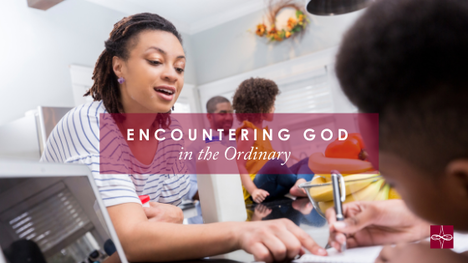



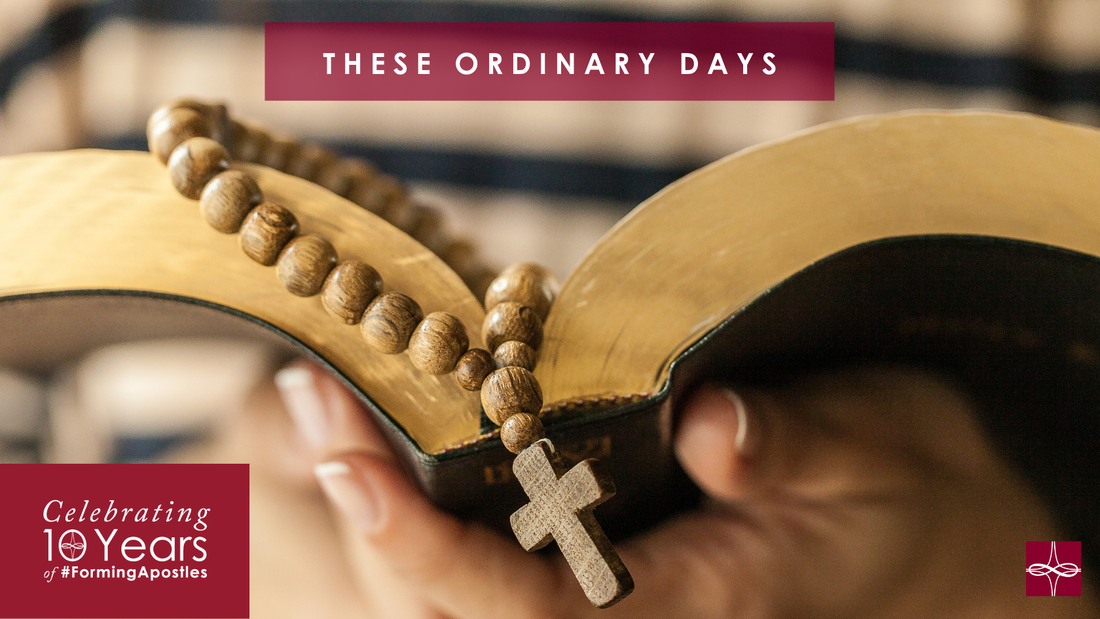

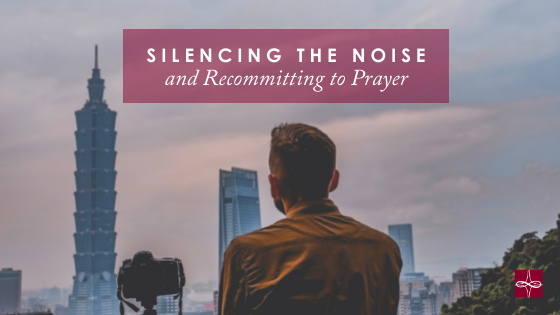

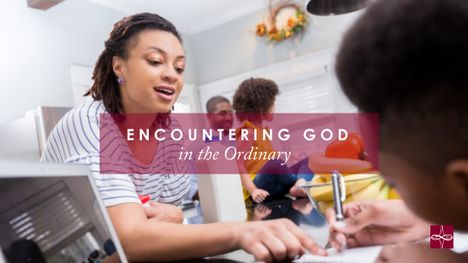

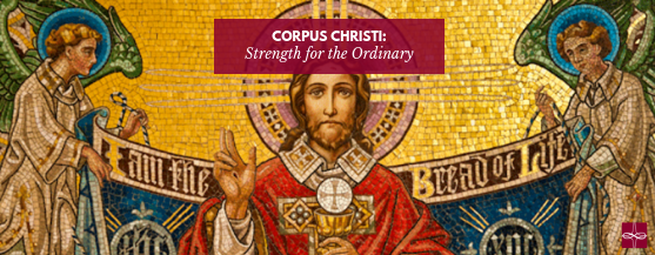

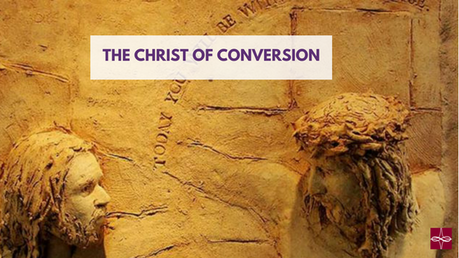





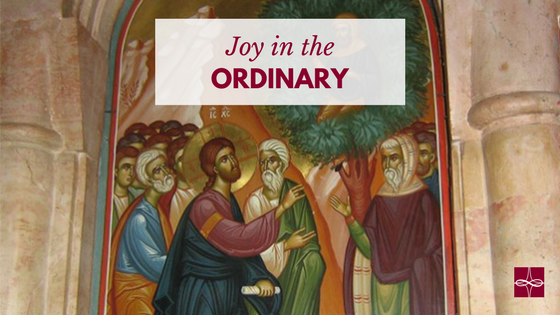

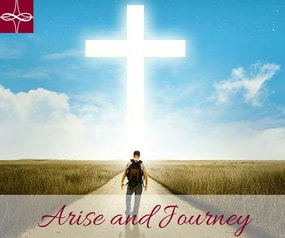

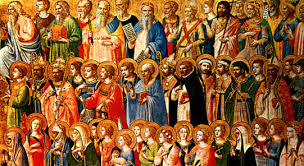


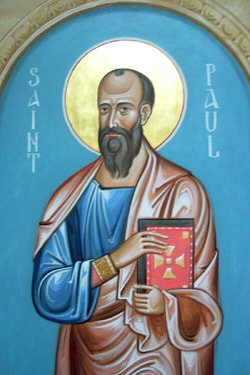
 RSS Feed
RSS Feed